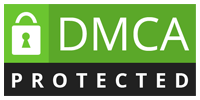We all use our computers, or maybe our gadgets, at home, right? Well, there’s no problem with that — as long as you do it safely.
Some of you might think that this is just all paranoia. If you’re one of them, then you’ve got yourself wrong. In fact, various reports claim that cyberattacks are on the rise, which is why we all need to make sure that we’re using cyberspace in the safest and most secure way possible.
Here’s how to do just that.
Have a reliable anti-virus software.
Having your own anti-virus software on your computer is important as these apps are made to stop viruses and different kinds of malware from infecting your device.
You need them because you’ll never know what’s out there, knowing that the internet is full of opportunists who might be prying on your information and looking to sabotage your online presence.
Although some might say that anti-virus software slows your computer down, it’s not really that slow. In fact, you won’t even notice it. What’s more is that the minuscule slow-down is totally worth it, knowing that you’re going to be protected.
Be up-to-date.
Aside from the fact that you need to be updated with the latest news about cybersecurity, your computer or device also must have up-to-date software. Make sure that you update all your mobile apps as these updates are made to secure you from cyberattacks.
Your computer should also have the latest OS version as computer companies are always creating solutions to the cyber threats that continue to plague everyone today. It makes sense to integrate these new solutions so that your computer won’t be infected by any virus or malware.
Learn proper password management.
Make sure that you have different passwords for your various social media accounts and emails. See to it that they also have complex combinations.
One good way of doing this is by mixing up letters, numbers, punctuation marks, and symbols. This way, hackers will have a hard time guessing your password. It’s also highly suggested that you change your password every once in a while.
Be careful when opening something.
Always be mindful of the things that you open and click on the internet. Avoid visiting sites that are unknown or have strange backgrounds and content. Also don’t open emails from unknown sources or if it aggressively asks you to click something as these are usually phishing scams.
Backup your data.
Backing up your data is necessary, especially that ransomware is becoming popular with hackers these days.
Ransomware is basically malware that hacks your computer, steals your data, and erase them on your drive. The only way to gain them back is by paying the hacker a hefty amount. However, you don’t have to worry about that if you’ve got a backup of your files.
Bonus tip if you’re outside: Avoid public Wi-Fi.
We all feel compelled to use the internet, whether it be for important matters or just for leisure. But as much as possible, use it if it’s not really necessary, especially if you’re out in the public.
Or more specifically speaking, if you’re planning to use public Wi-Fi. Although it might sound convenient to use it, especially if you’re at the airport, a pub, or somewhere else, because it’s free, fast, and you don’t need data to use it, it’s still not recommended.
Someone might just be stealing your passwords or tapping onto your accounts as you’re blindly using the server host’s connection.
Final Words
It doesn’t mean that if you’re at home, then you’re already safe from all the cyber threats that might have been a problem if you’re in the office or outside.
The same risks apply, which is why you need to be aware of the threats and learn how to avoid them, or if possible, counteract them. This article aims to do just that.
Hopefully, we’ve helped you improve your computer security at home so that you’ll have a more enjoyable and productive time using the internet.
Take our advice seriously, and you’ll surely be faring well.











